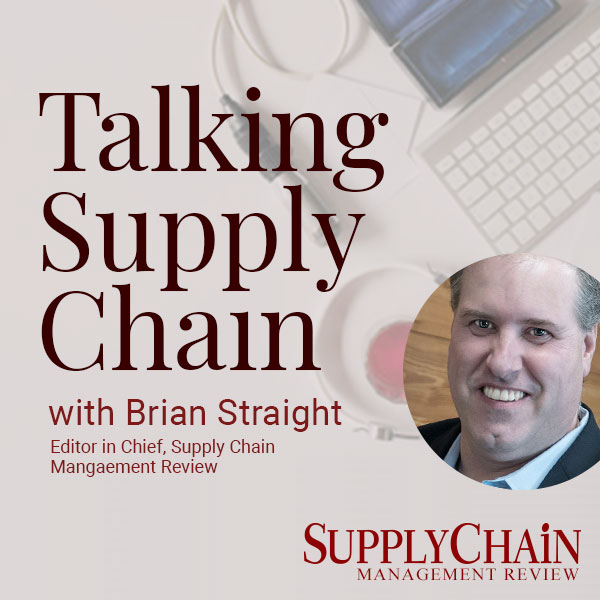Although blockchain is still early in its development, several benefits of its use in the supply chain are emerging. One of the most prominent ones is the digitization of manual documentation for international trade. But what other supply chain hot spots are there for the technology?
Track and trace is one. Establishing chain of custody and verifying ethical and environmental supply chain credentials is another. Trade and supply chain finance applications are also near the top of the list. For example, blockchains could help buyers, sellers and financial institutions synchronize the flow of goods and money.
But the most compelling application areas are driven by combinations of market and regulatory demands. Two prime examples are in the food and pharmaceutical industries.
Contamination of the food supply
In food, the travails of companies such as restaurant chain Chipotle encapsulate the challenges that make blockchain solutions attractive. Chipotle has been trying to recover from food poisoning scandals since 2015, despite its best efforts to tighten safety procedures.
Chipotle's problems reflect wider issues in the food industry where operational complexity and entrenched organizational silos frustrate efforts to improve supply chain transparency. More stringent regulations, such as the introduction of the Food Safety Modernization Act in the U.S., add to the pressure on companies to address these issues.
An incident, separate from any at Chipotle, involving infected food illustrates the difficulties faced by the industry. In June 2016, an outbreak of food poisoning occurred across nine U.S. states involving 32 patients.
The outbreak strain of bacteria was isolated from imported Anaheim pepper. An investigation by the Centers for Disease Control and Prevention (CDC) revealed that fresh hot peppers were the likely source of infection, but a single pepper type or source farm could not be isolated. Even though the CDC was armed with advanced detection techniques such as genetic testing, it could not pinpoint where the infection entered the supply chain.
The complexity of the pepper supply chain was a huge challenge in tracking the flow of peppers. There are numerous growers, and the product is consolidated before it gets to retail outlets. Moreover, peppers are an ingredient for prepared dishes, and the epidemiologic investigations had to rely on a review of restaurant-specific recipes to track where the peppers were used.
Blockchain technology provides a tamper-proof, up-to-date database of transactions available to all verified users, a powerful tool for monitoring product chain of custody from farm to fork. Vendors are already developing these applications for the technology.
Consider, for example, a pilot project that involves Walmart and IBM to track mangoes using blockchain. The test project has reportedly chalked up some notable successes, such as reducing the time to identify and pinpoint packs of mangoes moving through the supply chain from days to seconds. Improving supply chain visibility yields operational efficiencies.
There's also the matter of speedily locating spoiled product so supermarkets can alert consumers much quicker and retrieve defective items with much greater precision.
Product tracing in the drug supply
Supply chain complexity is a challenge in the pharmaceutical industry, which is compounded by legislation including the Drug Supply Chain Security Act (DSCSA).
The Act imposes deadlines on manufacturers, re-packagers, wholesale distributors, dispensers and third-party logistics providers to comply with stringent product tracing requirements. A major driver of the legislation is the need to combat unacceptably high volumes of counterfeit drugs.
The complexity of supply chains compounded by trust issues in the pharmaceutical industry traditionally impede the flow of information between trading partners. Fortunately, blockchain's immutable and widely distributed database of transactions is a compelling solution. These benefits, coupled with the rigorous DSCSA product tracking requirements, are driving the development of blockchain solutions. But many difficult issues must first be resolved.
To begin, there is not an industry-wide blockchain solution. Which means the various entities involved in the pharma supply chain must learn to navigate between multiple blockchains. There are also the questions about what data will be available from each node in these blockchains, and who owns the data.
Issues like these are challenging but by no means insurmountable, especially where a clear imperative for improving supply chain traceability and trust already exists.
Ken Cottrill is research principal at Chain Business Insights. He can be reached at [email protected].
The Benefits of Blockchain
Read the rest of the four part series on block chain.
Part 1
Part 3
Part 4
SC
MR


Latest Supply Chain News
- How CPG brands can deliver on supplier diversity promises
- How S&OP provides the answer to in-demand products
- AI, virtual reality is bringing experiential learning into the modern age
- Humanoid robots’ place in an intralogistics smart robot strategy
- Tips for CIOs to overcome technology talent acquisition troubles
- More News
Latest Podcast

 Explore
Explore
Software & Technology News
- AI, virtual reality is bringing experiential learning into the modern age
- Humanoid robots’ place in an intralogistics smart robot strategy
- Tips for CIOs to overcome technology talent acquisition troubles
- Game on: Rethinking change management for the digital era
- Predicting stockouts: Enhancing FMCG resilience through data-driven insights
- Top Performers Investing in, Benefitting from AI
- More Software & Technology
Latest Software & Technology Resources

Subscribe

Supply Chain Management Review delivers the best industry content.

Editors’ Picks




